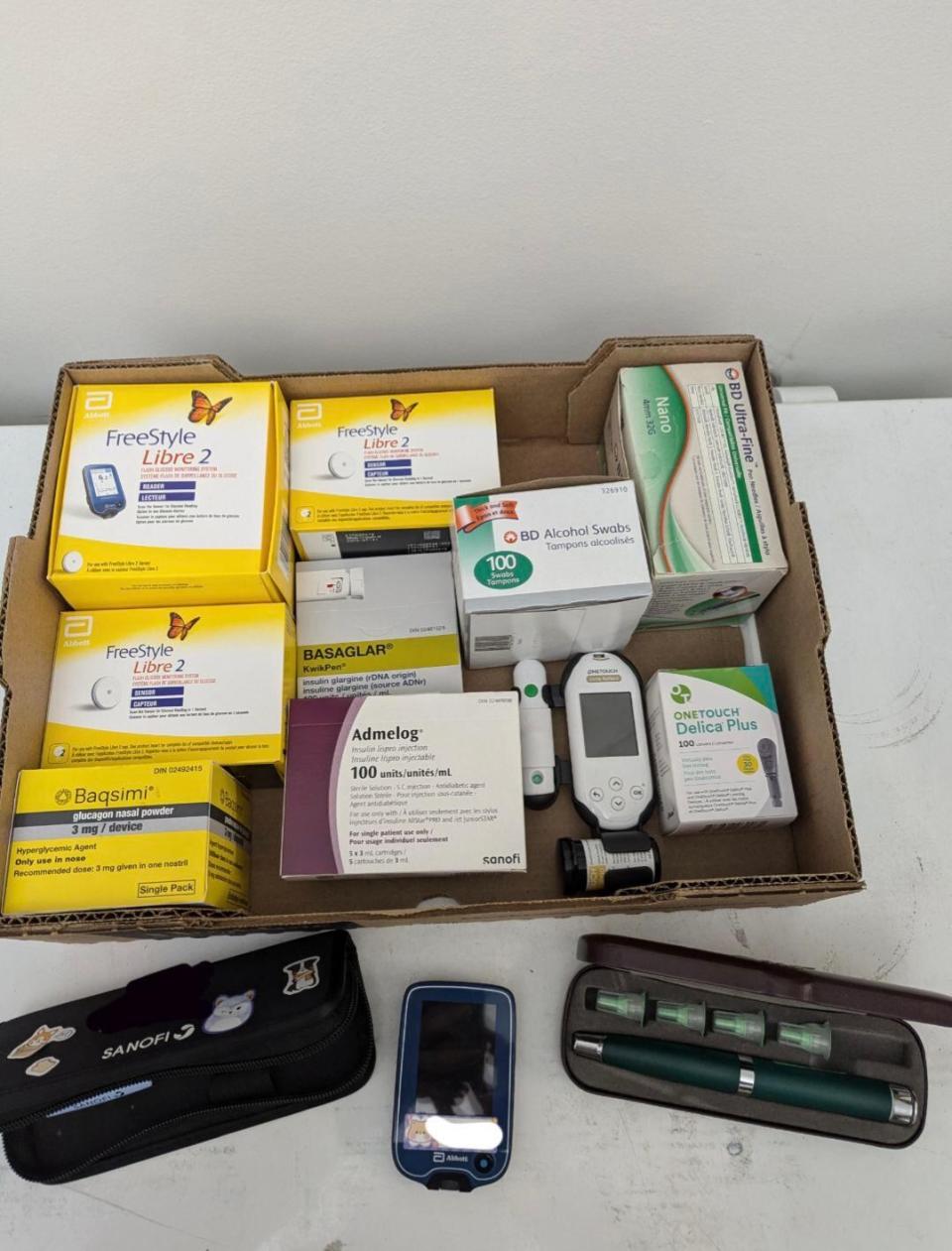A Calgary mother and father say they’re forced to chose between buying Christmas gifts and paying for diabetes medication for their children, and they’re pleading with the Alberta government to hammer out a deal with Ottawa on the federal pharmacare program.
The Pharmacare Act, which lays the groundwork for a universal program in Canada, became law in October. The first phase is intended to provide some diabetes medication and contraceptives for free to Canadians, through individual agreements with the provinces.
While no money is flowing yet, B.C. was the first province to sign a memorandum of understanding.
The Alberta government signalled early that it would opt out. It’s unclear if the province intends to participate in any negotiations.
“I feel frustrated and angry,” said Melissa Mathison, whose two children, ages nine and 12, are living with Type 1 diabetes, a chronic auto-immune disease that often appears during childhood.
The family is struggling to afford $600 a month for insulin and blood sugar monitoring supplies.
“We are racking up credit card debt,” she said. “We’re kind of choosing medical supplies and medications over Christmas gifts. It’s not a really awesome situation.”
According to Mathison, her family was cut off of the Alberta Child Health Benefit because their annual income is $100 above the threshold.
Mathison works a part-time job in the evenings so she can go to the school during the day to help her kids with their diabetes care. She has no health benefits.

Melissa Mathison’s nine-year-old was recently diagnosed with Type 1 diabetes. At the time, the family had to purchase a starter kit of supplies. (Melissa Mathison)
Her husband, Michael Woolley, is on long-term disability due to severe epilepsy. He has a limited medical expense account through his employer, which the family exhausted quickly.
Woolley wakes up every morning worrying about the health of his children and how his family is going to make ends meet.
“It’s a daily concern for me,” he said.
“Without the help of the government, the crack we’ve slipped through literally can be life-threatening.”
Diabetes coverage ‘inconsistent’ in Alberta
“These stories are unfortunately rather common. And it is heartbreaking,” said Dr. Doreen Rabi, an endocrinologist and head of the University of Calgary’s division of endocrinology and metabolism.
“Insulin is organ replacement. This is not a discretionary medication.”
Rabi said that while Alberta does have some very good programs in place, there are also some big gaps in coverage.
“They’re not all that accessible to every single citizen,” she said, noting they’re often tied to income.
“The government is [also] assuming that most Albertans have third-party coverage through their employer, and that’s just not true.”


Dr. Doreen Rabi is the head of the endocrinology and metabolism division at the University of Calgary. She said insulin is not a discretionary medication. (Doreen Rabi)
According to Rabi, there are also many people who, while they have very limited private coverage, don’t qualify for provincial programs. The coverage that is there can be difficult to find and navigate, she added.
“There’s a lot of inconsistency in what’s currently available to people living with diabetes. So when there’s a national plan that’s being offered saying ‘you should provide all of these things to all people,’ it is frustrating to hear that your government is not signing on to that,” she said.
“It would behoove the government to at least discuss what is possible with the federal government and start that process.”
The Alberta government did not answer specific questions about whether it stands by its decision opt out or if it will negotiate.
Rather, it shared the same statement it provided to CBC News in October, saying it is willing to discuss ways the federal government can contribute to Alberta’s existing programs and expand coverage.
“Unfortunately, the federal government has yet to share its vision for the future of national pharmacare, beyond coverage for contraceptives and diabetes medications, and how pharmacare will be financially supported in the long term while respecting Alberta’s current offerings,” the statement said in part.
“Without meaningful consultation and true collaboration, Alberta will continue to call on the federal government to provide predictable, sustainable, unconditional health funding that aligns with provincial and territorial priorities, and respects our exclusive jurisdiction over the planning, organization and management of our health-care systems.”
Alberta commissioned a diabetes working group in 2022 to identify gaps in care and inform a provincial diabetes strategy. But the results have yet to be released.
For its part, the federal government said talks are ongoing and it hopes to have agreements in place soon.
“Minister [Mark] Holland has discussed pharmacare with each of his provincial and territorial counterparts and is in the process of meeting with each province and territory specifically on pharmacare,” a spokesperson from the minister’s office said in an email.
Federal Conservative Leader Pierre Poilievre has voiced his opposition to the federal program.
Meanwhile, Mathison and her husband are still searching for some kind of provincial government program that could help them.
“Managing the Type 1 diabetes — especially for both of them — was already stressful enough without the financial concerns that we are now facing. It’s very difficult to have optimism,” she said.
“I feel almost betrayed.”

